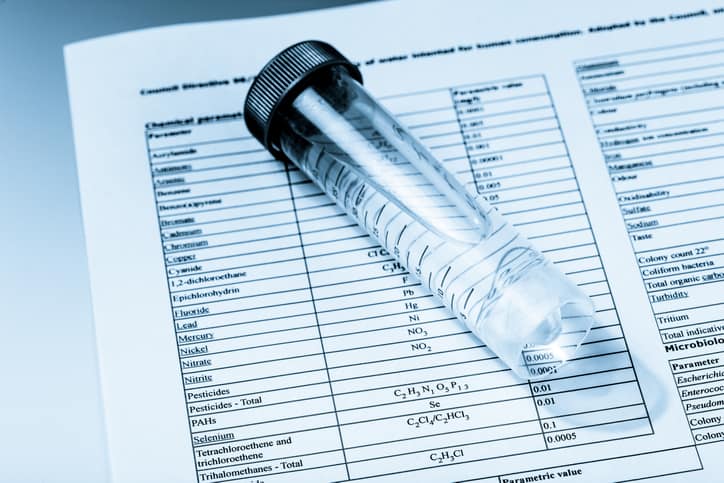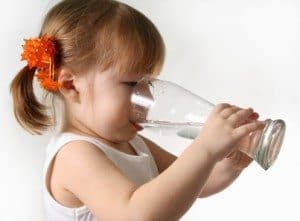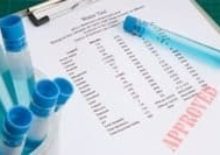
Water Quality Testing
Is water testing required by your regulatory agency? Are you concerned about your water supply? Do you wonder if your water filter is removing heavy metals from your drinking water? If you answer yes to any of these questions you need a water quality expert.
If you care about water quality, you know that a bad taste or smell can ruin the pleasure of drinking. If your water tastes “weird” or smells “chemically” there is clearly reason for concern. However, not every water pollutant can be tasted or smelled. Some dangerous forms of bacteria, many common pesticides and heavy metals cannot be detected without water lab analysis. Not knowing if your water supply is safe can cost you more than just anxiety, and investing in bottled water or water purification can be expensive and unnecessary. A water quality inspection can determine if filtration is necessary or effective.
Who Needs a Water Quality Consultant
Commercial and industrial water testing may be compliance requirements, but the young and elderly, immunocompromised, or pregnant should be especially cautious. The US EPA recommends that private wells be tested annually for nitrates and coliform bacteria. Unfortunately, the US EPA does not regulate many chemicals commonly found in our municipal water supply. The more we know about our water system the more empowered we are to make sure we are getting the highest quality water possible.
Other questions for a water quality consultant include what type of water filter should I buy, how often should I change the water filter, and which type of piping is better: plastic vs. copper? Many don’t even know there is a water filter on their refrigerator, or where their whole-house water filter is located.
Through precise lab analysis, we make the invisible – visible. Our user-friendly reports will indicate if additional water filtration is recommended or if your existing filtration system is sufficient, providing peace of mind and a clear direction for maintaining good water quality.
Water Quality Assessment
Healthy Building Science begins every water quality survey with questions about the water source, building plumbing, and occupant or owner goals. Similar to the “4 Ps” in air quality inspections, a good water quality assessment will always include this initial questionnaire in order to correctly prepare the scope of water testing. The impetus for contacting a water quality expert and scope of water testing is obviously different for industrial or commercial water testing projects compared to office buildings and residential buildings. Step one is determining the overarching question we want answer by water testing.
Once we know the water question we’re answering, we help identify the most appropriate locations for testing and specify which laboratory analysis will most likely answer our question. For example, in order to test the effectiveness of a water filter, one must test at least twice – once before and once after the filter. Only then can you compare the water test results and determine how much of which contaminants are being removed. Whether we are testing for lead in water or for WELL Building Standard Verification, the second step in the water testing process is to determine what fixtures will be tested.
Special water sampling containers are sterilized and often contain preservatives. For example, when testing for bacteria in chlorinated water the preservative Sodium Thiosulfate is included in the sampling bottle. Water testing for ammonia, nitrite and total phosphorous requires Sulfuric Acid as a preservative, and when analyzing water for metals Nitric Acid is often used. Water quality consultants must know what pollutants are being targeted and must have the proper water collection media on hand.
Samples are carefully collected so as not to cross-contaminate samples or accidentally spill preservative from the bottles. Water quality experts will have experience with testing procedures to minimize the risk of invalidating a collected sample. Depending on what water quality parameters are evaluated, the sample is shipped cool or at room temperature to the lab. Lab results can be ready same day or may take up to three weeks depending on the lab used and within budget for the project.
Water quality results are generally compared to allowable limits from the EPA National Primary Drinking Water Regulations, or for the relevant regulatory agency for compliance water testing.
Common Water Test Contaminants
If there is a known water pollutant such as lead or Trihalomethane that is being targeted only one lab test may be required. Often clients need a comprehensive water quality screen that examines many different parameters. Here are the more common clusters of water quality analysis available from our laboratories.
- Microbiological: Total Coliform, E.coli, and Legionella
- Inorganics and Metals: Aluminum, Arsenic, Barium, Cadmium, Calcium, Chromium, Copper, Iron, Lead, Magnesium, Manganese, Mercury, Nickel, Potassium, Selenium, Silica, Silver, Sodium, Zinc
- Physical Factors: Alkalinity, Hardness, Total Dissolved Solids, Turbidity
- Inorganic Analytes – Other: Chloride, Fluoride, Nitrate as N, Nitrite as N, Ortho Phosphate, Sulfate
- Organic Analytes – Trihalomethanes: Bromodichloromethane, Bromoform, Chloroform, Dibromochloromethane, Total THMs
- Organic Analytes – Volatiles: 1,1,1,2-Tetrachloroethane, 1,1,1-Trichloroethane, 1,1,2,2-Tetrachloroethane, 1,1,2-Trichloroethane, 1,1-Dichloroethane, 1,1-Dichloroethene, 1,1-Dichloropropene, 1,2,3-Trichlorobenzene, 1,2,3-Trichloropropane, 1,2,4-Trichlorobenzene, 1,2-Dichlorobenzene, 1,2-Dichloroethane, 1,2-Dichloropropane, 1,3-Dichlorobenzene, 1,3-Dichloropropane, 1,4-Dichlorobenzene, 2,2-Dichloropropane, 2-Chlorotoluene, Chlorotoluene, Lithium, Strontium, Uranium, Bromide, Benzene, Bromobenzene, Bromomethane, Carbon Tetrachloride, Chlorobenzene, Chloroethane, Chloromethane, cis-1,2-Dichloroethene, cis-1,3-Dichloropropene, DBCP, Dibromomethane, Dichlorodifluoromethane, Dichloromethane, EDB, Ethylbenzene, Methyl Tert Butyl Ether, Methyl-Ethyl Ketone, Styrene, Tetrachloroethene, Tetrahydrofuran, Toluene, trans-1,2-Dichloroethene, trans-1,3-Dichloropropene, Trichloroethene, Trichlorofluoromethane, Vinyl Chloride, Xylenes
- Pesticides, herbicides, and PCBs: 2,4-D, Alachlor, Aldrin, Atrazine, Chlordane, Dichloran, Dieldrin, Endrin, Heptachlor, Heptachlor Epoxide, Hexachlorobenzene, Hexachlorocyclopentadiene, Lindane, Methoxychlor, PCBs, Pentachloronitrobenzene, Silvex (2,4,5-TP), Simazine, Toxaphene, and Trifluralin
Water Testing Sample Projects
-
Water testing at Santa Rosa hospital
-
Water testing for a Sacramento government agency building
-
Water testing San Francisco office buildings and WELL Building Standard Verification
-
Water testing a San Jose home
Water Quality Testing Bay Area
Healthy Building Science is an environmental consulting firm providing water quality testing services for commercial, residential, multi-family buildings, offices, industrial and manufacturing workplaces, hospitals and medical facilities, and single-family homes in the greater San Francisco Bay Area and Northern California. Cities we service include San Francisco, San Jose, Oakland, Sacramento, Santa Rosa, Hayward, Sunnyvale, Fremont, Concord, Salinas, Santa Clara, Berkeley, Vallejo, Fairfield, Antioch, Richmond, Daly City, San Rafael, San Mateo, Vacaville, San Leandro, and Livermore and Alameda County, Contra Costa County, Marin County, Napa County, San Mateo County, Santa Clara County, Solano County and Sonoma County.
We would be pleased to become your go-to water quality consultant and help you with any of your water quality lab testing or water monitoring needs.
Please call 415-785-7986 or complete this online form today!








